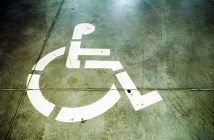Co-Dependency And Addiction: How To Stop Using When An Enabler Makes Using Easy
A person struggling with addiction must manage not only internal cravings and the psychological connection to alcohol but also external influences from others. Some people may offer genuine assistance, while others fall into the trap of enabling a cycle of addiction with misplaced good intentions. It’s difficult to see someone else suffering without desiring to help, and unfortunately, most enablers contribute to addictions when they believe they are helping those struggling with them.
Enabling describes anything that helps a person struggling with an addiction maintain that addiction. Essentially, anything that prevents the struggling individual from feeling the effects of his or her substance abuse is enabling behavior. Some common examples would be paying a loved one’s rent or other bills while he or she struggles with alcoholism or driving a friend with an addiction to buy beer. While the enabler may believe he or she is helping by preventing the struggling loved from discomfort or pain, the reality is that the enabler is simply maintaining the addictive pattern.
Eventually, this relationship will devolve to the detriment of everyone involved. The alcoholism will worsen and the person with the addiction will require increasing assistance from the enabler to avoid persistent alcohol withdrawal. If the enabler refuses or is unable to help, alcohol withdrawal symptoms will quickly manifest and escalate to potentially fatal levels.
Is Detoxing Alone Really Fatal?
Many wonder, “Can you die from alcohol detox?” The short answer is yes. Withdrawal from alcohol is more medically dangerous than any other substance. The symptoms of alcohol detox progress very rapidly, and life-threatening symptoms can appear within 72 hours of the last dose of alcohol. Symptoms appear and progress more rapidly for more severe alcoholism. Alcohol detox is a very dangerous process, but it’s also essential to recovery. However, alcohol detox at home is incredibly risky.
Dangers Of Enabling Behaviors
A person who enables another person struggling with an addiction typically does so out of fear of losing the relationship. Enabling is most common among parents, spouses, children, and other close relatives, but anyone connected to a person struggling with addiction may eventually become an enabler. An enabler may also fear losing the person with the addiction if he or she goes to detox or winds up in trouble with the law. Enablers who attempt to help a person detox without legitimate medical assistance put the other person’s life at serious risk.
Benefits Of Medical Assistance During Detox
When a person has medical assistance during alcohol detoxification, symptoms are far more manageable, and the person will receive nutritional support and medications to handle the physical effects of withdrawal. Alcoholism takes a very heavy toll on the body, and the initial stages of detoxification often include nausea, vomiting, dehydration, loss of appetite, and abdominal pain. The later stages, around 72 hours after the person’s last drink, include more serious symptoms including delirium, increased blood pressure, and seizures.
Nutritional support, hydration, and pain medications can help handle the early withdrawal symptoms, and medical staff is nearby throughout the entire detox process in case of emergency. Detoxing alone doesn’t include these safeguards, so the person going through withdrawal will feel the full force of the uncomfortable symptoms while at significant medical risk when it comes to the more severe symptoms in the later stages.
Withdrawal Stages And Symptoms
Within eight hours of the last drink, a person struggling with alcoholism will begin feeling the onset of withdrawal. The early symptoms, such as nausea, dehydration, depression, fatigue, and shakiness, will grow progressively more uncomfortable for up to 24 hours, when the second stage manifests. Vomiting, high blood pressure, anxiety, severe mood swings, and respiratory difficulties are common at this stage, which can persist for up to 72 hours when the most significant symptoms appear. Delirium, trembling, hallucinations, seizures, and all the previous stages’ symptoms make this stage very dangerous.
The alcohol detox death rate is difficult to calculate for several reasons, but the appearance of delirium tremens (the DTs) is the greatest cause for concern. Seizures can be fatal in many circumstances. A seizure can cause a person to inhale food, fall and suffer a traumatic brain injury, lose control of a vehicle, and other fatal possibilities. Medical assistance will help manage the alcohol detox side effects in a safe environment.
Medically assisted alcohol detox can help eliminate alcohol withdrawal symptoms in as little as five days. Without medical intervention, withdrawal symptoms can persist for six to eight months, even up to one year in some cases. Symptoms will recur over time with varying intensity, and the stress and physical shock of experiencing withdrawal can cause other medical complications with heart rate, blood pressure, thyroid function, and psychological distress.
Recovery And Beyond
Ultimately, medical assistance for detox is invaluable. It’s difficult enough to recover from alcoholism under ideal circumstances, so don’t make the issue more challenging by attempting to act as your own doctor. Medical assistance helps keep withdrawal symptoms manageable and prepares the physical body for the recovery process. People who undergo medically assisted detox have a much better chance of achieving sobriety than those who attempt home or self-detox.
Medically Assisted Detox Is A Strong Start To Recovery
Recovery from any type of substance abuse is a long-term process with many steps, and medical assistance during detox provides a fantastic foundation for recovery. It’s much easier to handle the psychological and emotional aspects of recovery with a healthy body, and medically assisted detox helps prevent alcoholism from inflicting serious physical harm before counseling and treatment begins.
Medical assistance for detox provides the best way to start recovery. Instead of dealing with withdrawal symptoms for any longer than necessary or facing serious fatal risks from the DTs or other symptoms of alcohol withdrawal, medically assisted detox is the safest option for alcohol addiction recovery.




